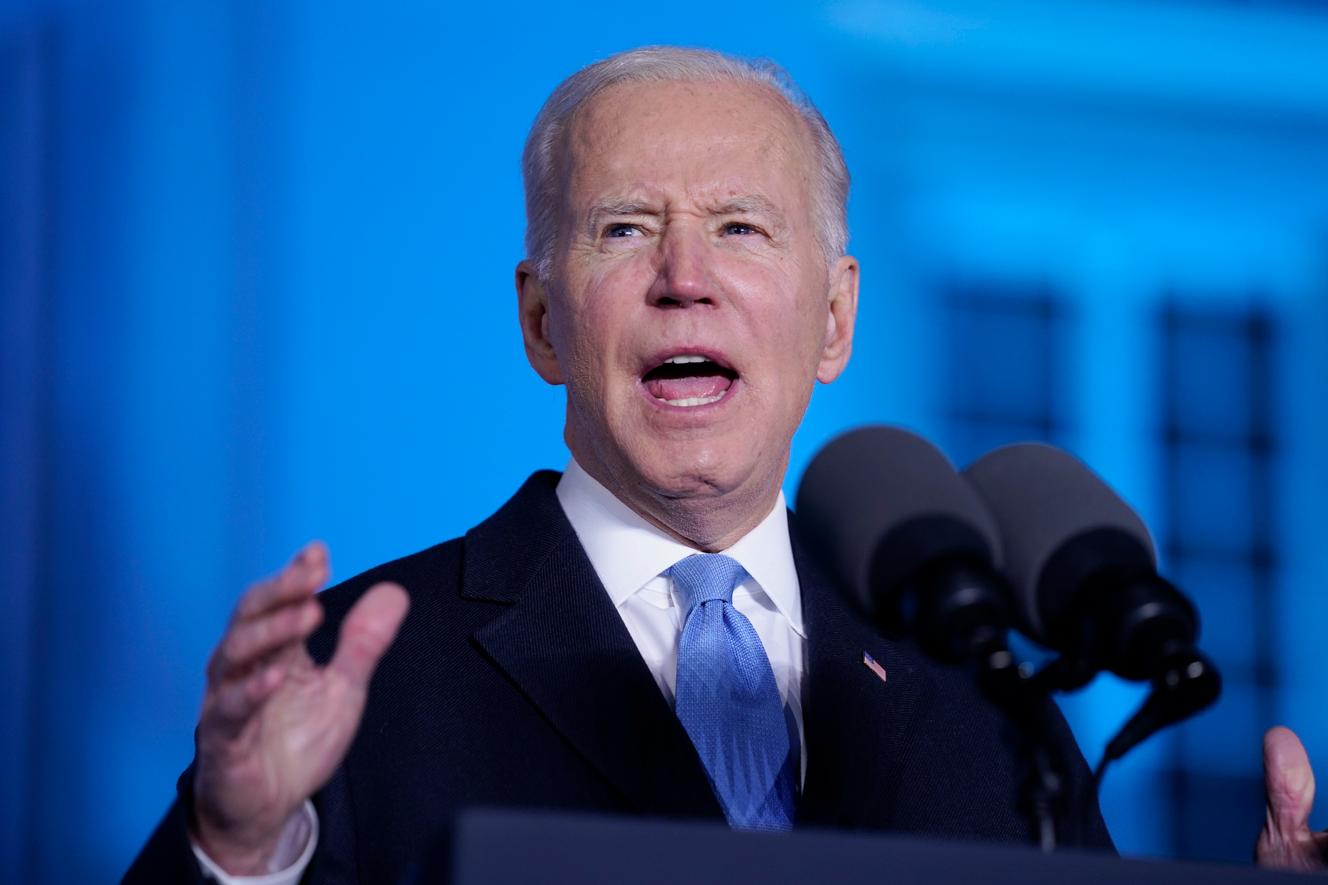
It was to be the apotheosis of a dense and successful two-day visit to Poland. The speech delivered by Joe Biden, Saturday March 26, at the royal palace in Warsaw, had been polished, neat, to make it a milestone in his foreign policy. This address to the Poles and to Europeans in general was an opportunity to emphasize the consistency of the American approach to the Russian invasion of Ukraine: drastic economic sanctions against Moscow, arms deliveries, refusal of a direct military commitment, absolute unity among allies.
And then a sentence fell, improvised, just before the American president retired. “For the love of God, this man cannot stay in power. » So spoke Joe Biden of Vladimir Putin.
The American president had just parasitized his own speech, even his disciplined political line since October 2021 with regard to Moscow. A line that aims to be both realistic – on American limitations – and intransigent, based on economic pressure and the cohesion of the Western bloc. A line embodied by two men, the Secretary of State, Antony Blinken, and the national security adviser, Jake Sullivan, who have never yet been found wanting in public speaking.
The Warsaw speech had, however, been very skilful. Joe Biden spoke of the long and bitter struggle in defense of freedom, touching his audience with relevant historical references. He had denounced the lies of the Kremlin, praised the extraordinary mobilization of the Poles in favor of the refugees, assured of the solidity of Article 5 of NATO, “sacred duty” of collective solidarity in the event of a threat against one of its members.
But the fateful sentence, barely uttered, triggered an avalanche of comments and questions. Joe Biden’s own advisers were forced to hastily clarify “what the president meant”. No, the latter would not have dreamed aloud of a change of regime in Russia. No, Washington had not just adopted, in broad daylight, a strategy of aggressive destabilization of the Kremlin. “What the president meant was that Putin cannot be allowed to exercise power over his neighbors or the region”we explained.
“He’s a butcher”
Sunday, Antony Blinken also sought to raise the bar. While traveling in Israel, he pointed out: “As you have heard us say repeatedly, we have no regime change strategy in Russia, or indeed anywhere else. In this case, as in all cases, it is up to the people of the country in question to decide. It is up to the Russian people to decide. »
You have 59.76% of this article left to read. The following is for subscribers only.

It was to be the apotheosis of a dense and successful two-day visit to Poland. The speech delivered by Joe Biden, Saturday March 26, at the royal palace in Warsaw, had been polished, neat, to make it a milestone in his foreign policy. This address to the Poles and to Europeans in general was an opportunity to emphasize the consistency of the American approach to the Russian invasion of Ukraine: drastic economic sanctions against Moscow, arms deliveries, refusal of a direct military commitment, absolute unity among allies.
And then a sentence fell, improvised, just before the American president retired. “For the love of God, this man cannot stay in power. » So spoke Joe Biden of Vladimir Putin.
The American president had just parasitized his own speech, even his disciplined political line since October 2021 with regard to Moscow. A line that aims to be both realistic – on American limitations – and intransigent, based on economic pressure and the cohesion of the Western bloc. A line embodied by two men, the Secretary of State, Antony Blinken, and the national security adviser, Jake Sullivan, who have never yet been found wanting in public speaking.
The Warsaw speech had, however, been very skilful. Joe Biden spoke of the long and bitter struggle in defense of freedom, touching his audience with relevant historical references. He had denounced the lies of the Kremlin, praised the extraordinary mobilization of the Poles in favor of the refugees, assured of the solidity of Article 5 of NATO, “sacred duty” of collective solidarity in the event of a threat against one of its members.
But the fateful sentence, barely uttered, triggered an avalanche of comments and questions. Joe Biden’s own advisers were forced to hastily clarify “what the president meant”. No, the latter would not have dreamed aloud of a change of regime in Russia. No, Washington had not just adopted, in broad daylight, a strategy of aggressive destabilization of the Kremlin. “What the president meant was that Putin cannot be allowed to exercise power over his neighbors or the region”we explained.
“He’s a butcher”
Sunday, Antony Blinken also sought to raise the bar. While traveling in Israel, he pointed out: “As you have heard us say repeatedly, we have no regime change strategy in Russia, or indeed anywhere else. In this case, as in all cases, it is up to the people of the country in question to decide. It is up to the Russian people to decide. »
You have 59.76% of this article left to read. The following is for subscribers only.






